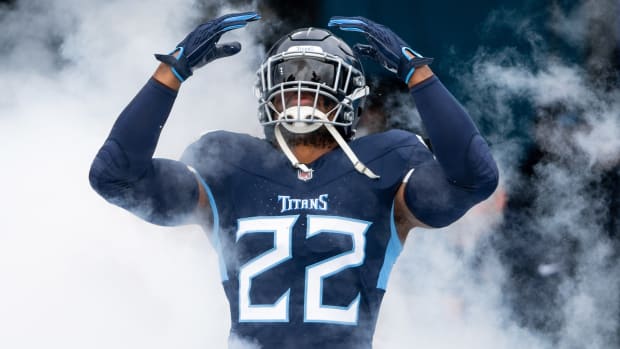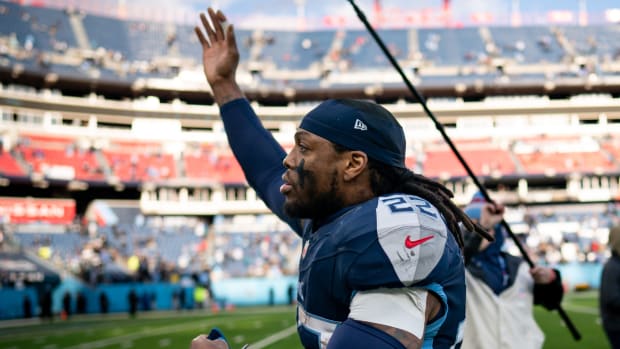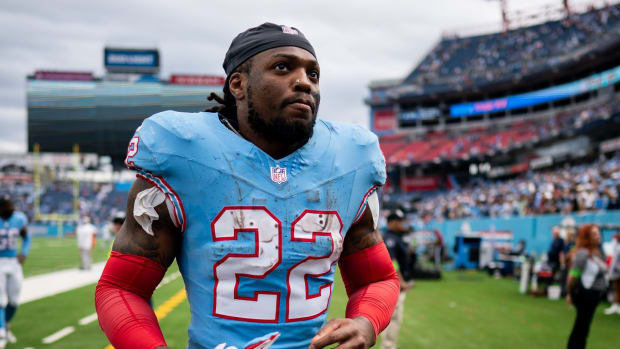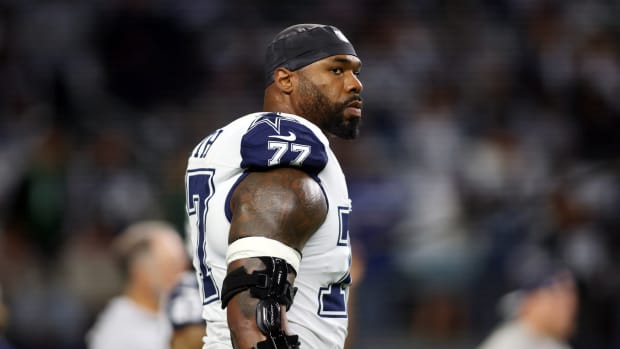Who Can Turn Things Around for the Defense?
NASHVILLE – So far, this season has been like looking in a mirror.
Yes, you see the Tennessee Titans, but just about everything through the first six games of this season is the opposite of the first six games of the last one.
Most notably, the offense did not score near enough during the first part of 2019. After Week 6 shutout defeat at Denver, the Titans were 28th in scoring at 16.3 points per game, 27th in total offense at 290.5 yards per game and 29th in third-down efficiency at 29.5 percent. They also had allowed a league-high 29 sacks.
It was at that point that Ryan Tannehill replaced Marcus Mariota at quarterback and the offense took off. Tennessee finished among the NFL’s top 12 in total offense and scoring offense and ended up 18th in third down efficiency.
Some will point to improved play by the offensive line, the emergence of wide receiver A.J. Brown, then a rookie, as a big-play threat and the rise of running back Derrick Henry, who ultimately led the league in rushing as factors of equal – or nearly equal – import in the reversal.
Then again, a case can also be made that all of those things happened because Tannehill was the quarterback. In either case, the offense was significantly better after that change.
Now, six weeks into 2020 it is the Titans’ defense that has yet to find its footing. Tennessee is one of eight teams that has allowed an average of more than 400 yards per game, and three opponents have scored 30 points or more (as many as all of 2019). Then there is the third-down defense, last in the league having allowed the other teams to convert 61 percent of the time.
The offense proved last year that six games is not too far into the schedule to get things turned around. There is no move coaches can make comparable to putting Tannehill in charge of the offense, but here is a look at players who can make a difference and make the defense much more productive than it has been thus far.
Adoreé Jackson, cornerback: He is the closest thing to Tannehill on this side of the ball in that he has not played in the first six contests due to a knee injury sustained days before the season-opener at Denver. Jackson is not a classic shutdown corner, but he has elite speed and is a more-than-capable tackler who can get receivers to the ground and limit yards after the catch. His return will set the rotation that coaches envisioned at cornerback, with Jackson and Malcolm Butler as the starters and veteran Johnathan Joseph as the third cornerback with rookies Kristian Fulton (he is currently sidelined by his own knee injury) and Chris Jackson employed as needed based on specific packages. That could have a calming effect on the secondary that spreads throughout the defense.
Jadeveon Clowney, outside linebacker: The high-profile free agent addition has influenced a number of plays, based on his ability to line up at multiple spots and the number of times he has gotten into the backfield. He has not made enough high-impact plays, the type that change momentum and make things easy on the offense. In other words, he has not been bad but he has been a little too close to ordinary for a three-time Pro Bowler, a guy who was drafted first overall in 2014 and – most importantly – a guy who counts more against the salary cap than all but two other players on the roster. Expectations for Clowney always will be unrealistic, but it is fair to expect him to do more for this defense.
Vic Beasley, outside linebacker: Another big-name free agent, Beasley was signed to do one thing – improve the pass rush. To date, he has played just over 20 percent of the snaps on defense and has not recorded a sack or even a quarterback pressure. Only one team has fewer sacks than the Titans, and if Beasley can do what was expected of him – or even close to it – it could make a huge difference on third down, which would then reduce the opponents’ scoring.
Kevin Byard, safety: No one on the defense has played more snaps than Byard, so there is no doubt that he is trying. However, this is the first time since his rookie year that he has not intercepted at least one pass within the first six games. His interceptions tend to come in bunches (three times he has had two or more in a game) and the Titans are 9-4 when he has at least one. Tennessee is second in the league with nine picks, but Byard’s tend to have a big impact and the Titans will benefit if – when – he gets into the act.
Rashaan Evans, inside linebacker: Evans led the Titans in tackles last season and leading into this one talked about his desire to play at a Pro Bowl level. He has not been a disappointment, but he has not been a difference-maker either. Thus far, he has 35 tackles (fourth on the team), no tackles for loss, no sacks, no forced fumbles and one quarterback pressure. Six games into last season he had 52 tackles, three tackles for loss, half a sack, and three quarterback pressures. The defense is designed for the inside linebackers to make plays. Evans can make a difference if he makes a few more.




